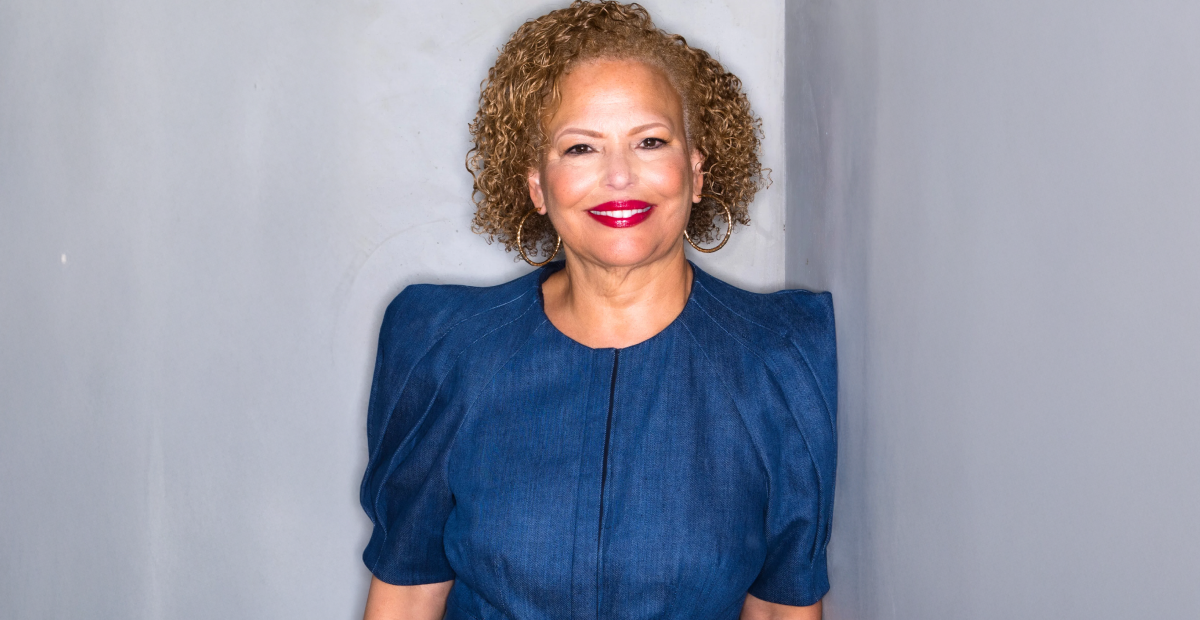Take up golf. Learn to play poker. Women leaders have often been told what to do to break into the “Old Boys’ Club.”
But that’s outdated advice, says organizational culture expert Michelle P. King, Ph.D., in her new book, “How Work Works: The Subtle Science of Getting Ahead Without Losing Yourself,” a guide to understanding and navigating the unwritten rules of the workplace. An award-winning DEI consultant, Dr. King’s research shows that diverse networks are now the key to success.
We agree. Earlier this year, Chief surveyed 751 women at and above management level in the United States. We found that networking played a pivotal role in helping women achieve nearly every career milestone — from securing a board seat to breaking into the C-Suite — and that women were largely satisfied with their network’s ability to support their career needs and goals. That was especially true for C-Suite and VP women, who had more diverse and powerful networks, often built through conferences, events, and cross-industry professional networking groups. Below, in an exclusive excerpt, Dr. King explains why women may have the networking advantage in an ever-changing era of work.
— Audrey Goodson Kingo

Photo Credit: Dr. Michelle P. King
Excerpted and adapted from "How Work Works: The Subtle Science of Getting Ahead Without Losing Yourself."
Throughout my career, whenever I started working for a new company, my boss or a co-worker would share the organizational chart. It only took a few minutes for someone to explain it. The real challenge was building my awareness of the informal relationships that exist outside of the formal structure. Who is connected to whom beyond formal titles? What team members like to work together? How strong are these relationships? Who can I trust?
While every company has a formal structure captured in an organizational chart, getting to know the informal network that lies beneath can be a lot harder. Informal networks aren’t formally sanctioned. The relationships form organically. Employees excluded from a formal network can raise issues with their boss or human resources, but not being invited to an informal gathering after work isn’t something organizations typically manage.
But informal networks are necessary for success. More than three decades of research found that the informal connections you create at work help you find a job, access opportunities for development and promotions, and increase your future earnings. They give you social capital in the form of advice, social support, and information. Informal networks are also how we access jobs. Nearly 70% of all jobs are not published or made publicly available, and consequently, 80% of vacant positions are filled through informal networks.
In the past, having a “closed” informal network—one where members are pretty similar to each other—didn’t matter. Typically, White men have and still do dominate leadership positions in organizations, and most research finds their networks are closed. We’ve all heard the term “old boys club” used to describe how White men typically build informal relationships with people who are similar to them, excluding anyone different.
When White men have closed informal networks, they tend to offer helpful information, opportunities for development, and the endorsement needed to secure promotion exclusively to members in their closed informal network because these are the people they know and trust. It’s not uncommon to gravitate toward people who are more like you, because it’s easy to predict how people who are similar to us will behave or what they value. The cost to organizations, however, is not only a lack of equity and diversity but groupthink, as people with the same backgrounds and perspectives tend to approach work the same way, limiting innovation, creativity, and the ability to solve complex problems.
While it might be tempting to assume the old boys club is a thing of the past, it isn’t. Research published in Harvard Business Review found that in large part, thanks to hybrid working, the diversity of individual networks shrunk by close to 16% as people were more likely to connect with existing close contacts (like the people they sit with at lunch) than with people they don’t know. This drop-off is explained mainly by men, whose networks shrunk by 30%, while women’s networks only reduced a little.
Memo to men: That might have worked in the past, but the world of work has changed. Not diversifying your network isn’t an option.
Your ability to do your job requires building and maintaining a wide range of contacts. One study found that executives who consistently rank in the top 20% of their companies (both in terms of performance and employee wellbeing) have diverse networks, made up of people who come from a range of backgrounds, positions and levels within the organization. Another found that people with more diverse networks were not only more likely to be promoted and remain with their organization for a longer period, but the diversity of their network enabled them to solve problems more innovatively and creatively.
The motivation to build a diverse informal network is simple: We need them. We need mentoring, sponsorship, advice, and career coaching from a diverse range of people because this is how we obtain a greater variety of support required to manage all the challenges we face in the new world of work. Without a diverse network, it won’t be easy to survive. Careers today are boundaryless, as new jobs are constantly emerging. Most employees will change their jobs on average every four and a half years. In an ever-changing work environment, you need to be flexible, mobile, and willing to learn new skills to stay relevant and valuable to your employer.
Consequently, your workplace is no longer responsible for managing your career path—you are. Having a diverse range of individuals advocating for your career will allow you to take advantage of the diverse range of career opportunities available today. In fact, a research study by Ron Burt, a globally recognized network scientist, found that according to multiple peer-reviewed studies, simply being in an open network rather than a closed one is the best predictor of career success.
It’s good news for women leaders, who have often been excluded from the golf games, poker nights and other informal networking opportunities favored by White men. Relying on the old boy’s network to get your next promotion or job opportunity simply won’t cut it. The new world of work requires a new way of networking, where women, and all individuals from underrepresented groups are invited to join.



